In my book Hellfire and Destruction, I show that the Bible does not teach hell as unending suffering but destruction. I also argue that the most likely state for those who are dead and awaiting the resurrection is unconscious sleep. This present article asks whether the dead can come to visit the living and interact with them.
Background
In the ancient world, many different cultures had a belief that the dead continued in some form after death. N T Wright gives a lot of material on this.[1] In Sumerian cultures the place of the dead contained gods/goddesses, dead humans, and malevolent spirits. In epics like Gilgamesh the life of the human shades or spirits was not good, though artefacts buried (sometimes as in UR with human sacrifices) indicate that for some expectation might be better. The dead shades/ghosts had to be cared for in some way by living relatives or might become demons and come back to harm them. In the Greek tradition, Homer portrayed the place of the dead as similarly grim. The ghost of Patroclus returns to visit his friend Achilles, but after proper burial will go to the gloom of hades. Later, Odysseus visits hades, but the ghosts there are miserable and angry. The classic Greek idea of hades in Homer was that it contained shades (skia), ghosts (psychai) phantoms (eidola). These are insubstantial and incoherent. As Wright indicates, the burial of household objects with corpses indicates that there was some expectation of continuation of life activities, but much restricted. There was an Elysium (paradise) for a few virtuous souls, and Homer’s contemporary Hesiod seems a bit more optimistic that some heroes could make it there. In later Greek Platonic thinking the human soul or being is immortal. After death there is a judgement, and some go to the Isles of the Blessed and the wicked to Tartarus. In early Greek mythology (and in Plato) a living hero (eg Odysseus or Er) could visit hades, but this was exceptional.
In the ancient world, neocromancy (consulting the dead) was also widespread. The ghosts of the dead could reveal secrets of how they had died and who was to blame, and for some reason might also be able to foretell the future.
Jewish Views
Hebrews did not have a Greek body-soul dualism, and man in Genesis 2:7 was not ‘given’ a soul but became a living soul with the breath of life. At death the body went to the grave and the spirit or personality to sheol, a place of gloom and darkness where there was no remembrance of God, proclamation or praise (Job 10:21; 26:5; Ps 6:5; 30:9; 88:11; 115:17). Any ex2istence was shadowy or minimal, and there was no coming back to life (Job 14:12, Ezek. 26:20–21).[2]
From the 2nd century BCE Daniel 12:2 and extra-biblical writings look for a resurrection to judgement, and this was unlike both Greek and other ancient ideas of what happens post death. By the time of Jesus this was a general Jewish expectation increasingly expected in Jewish literature, eg 1 Enoch, 2 Maccabees, Judith, and the Dead Sea Scrolls.[3] There is no indication of a belief that the human soul or being is inherently immortal.
We can ask, however, whether those in sheol or in hades (the equivalent Greek term) were (or are) in the Jewish view conscious, and whether they could interact with living people. This question applies to pre-Christian Jewish beliefs and also to the Jewish Christians who gave us our New Testament.
As far as concerned the pre-Jesus Jews we have to distinguish the ordinary people from those who were faithful to God and his prophets. The Old Testament contained no indication that the dead were conscious or interacting in any way with the living. As already noted, any existence was shadowy and without any remembrance even of God. Jewish writings outside the Bible in general reflect this pattern. The exception is the book of 1 Enoch, which is a collection of sections composed from the 3rd to 1st century BCE. 1 Enoch refers to the dead people as ‘spirits’. This apocalyptic work (available only in an Ethiopic version) starts:
The words of the blessing of Enoch, wherewith he blessed the elect and righteous, who will be living in the day of tribulation, when all the wicked and godless are to be removed. And he took up his parable and said — Enoch a righteous man, whose eyes were opened by God, saw the vision of the holy one in the heavens, which the angel showed me and from them I heard everything, and from them I understood as I saw, but not for this generation, but for a remote one, which is for to come.
So this is a ‘parable’ seen in a ‘vision’. Enoch was one who ‘walked with God; then he was no more, because God took him.’ (Gen 5:24). So this was neither someone who died coming back from sheol, nor a living person visiting sheol. In his vision the dead are in ‘hollows’ in sheol but there is no indication they can come to visit the living. Sheol contains 3-4 ‘hollows’ and in 1-2 the unrighteous suffer to varying degrees – though the hollow for the righteous can hardly be called paradise. This ‘parable’ and ‘vision’ does not seem to be reflected in other pre-Jesus Jewish writings however. A part of 1 Enoch was found in the Dead Sea collection, but there is no indication its view of the dead was in the Dead Sea (Qumran) theology.
The Old Testament Law strictly forbids any attempt to contact or consult the dead:
“Do not turn to mediums or necromancers; do not seek them out, and so make yourselves unclean by them: I am the Lord your God. (Lev 19:31)
“If a person turns to mediums and necromancers, whoring after them, I will set my face against that person and will cut him off from among his people. (Lev 20:26)
And when they say to you, “Inquire of the mediums and the necromancers who chirp and mutter,” should not a people inquire of their God? Should they inquire of the dead on behalf of the living? (Isaiah 8:19)
Notably, this makes no comment as to whether these practices really can call up the dead. It simply forbids consulting mediums and necromancers because to do so will defile people. Many Christians believe that mediums have no such power, but rather that those who purport to be dead friends or relatives are demonic masquerades. So is there any clear biblical evidence about this?
1 Samuel 28 and 1 Chronicles 10:11-13
Leviticus 20:27 instructs that they put to death anyone who is or has an ’ō-wḇ or yid-də-‘ō-nî.. In 1 Samuel 28:3 we hear that Saul has removed all the yiddeoni and hā·’ō·ḇōṯ from Israel. Scholars seem not to agree on the exact meanings of these terms, and it seems that sometimes a person has an ’ō-wḇ and sometimes is referred to as one. The yiddeoni seem to be what we would call ‘familiar spirits’ or ‘spirit guides’. The ’ō-wḇ is taken by some as either a pit or a bottle made of skin used by mediums. It may have the idea of mumbling or speaking with a strange hollow sound as though channelling the voice of the dead person.[4] The LXX translates as gnostis and engastrimythos. The first term is ‘a knowing one’, the second includes ‘in’, ‘gut’ and ‘myths’, and maybe means someone who speaks a low sound from the stomach. The term is sometimes rendered ventriloquist. The Israelites were forbidden to contact the dead, but of course in practice they would attempt this through a medium so it is forbidding them to deal with mediums.
2 When the woman saw Samuel, she cried out with a loud voice. And the woman said to Saul, “Why have you deceived me? You are Saul.” 13 The king said to her, “Do not be afraid. What do you see?” And the woman said to Saul, “I see a god coming up out of the earth.” 14 He said to her, “What is his appearance?” And she said, “An old man is coming up, and he is wrapped in a robe.” And Saul knew that it was Samuel, and he bowed with his face to the ground and paid homage.
15 Then Samuel said to Saul, “Why have you disturbed me by bringing me up?” Saul answered, “I am in great distress, for the Philistines are warring against me, and God has turned away from me and answers me no more, either by prophets or by dreams. Therefore I have summoned you to tell me what I shall do.” 16 And Samuel said, “Why then do you ask me, since the Lord has turned from you and become your enemy? 17 The Lord has done to you as he spoke by me, for the Lord has torn the kingdom out of your hand and given it to your neighbour, David. 18 Because you did not obey the voice of the Lord and did not carry out his fierce wrath against Amalek, therefore the Lord has done this thing to you this day. 19 Moreover, the Lord will give Israel also with you into the hand of the Philistines, and tomorrow you and your sons shall be with me. The Lord will give the army of Israel also into the hand of the Philistines.”
1 Chronicles 10 adds:
13 So Saul died for his breach of faith. He broke faith with the Lord in that he did not keep the command of the Lord, and also consulted a medium, seeking guidance.14 He did not seek guidance from the Lord. Therefore the Lord put him to death and turned the kingdom over to David the son of Jesse.
There are three basic alternative explanations of what really happened here:
- It really was Samuel and the medium had the power to call him or anyone else up.
- It really was Samuel but God sent him up in this special case.
- It was not Samuel but a demonic force pretending to be him.
We should note that Saul apparently did not see Samuel, and the woman had to describe what she saw. From the word used the LXX seems to have taken it that Saul heard Samuel only through the voice of the medium ‘speaking from her stomach’. When Saul fell down prostrate in terror the woman ‘came’ to him but this is a general word for came and does not imply that she had left Saul to chat with Samuel on his own. So was he really talking with Samuel?
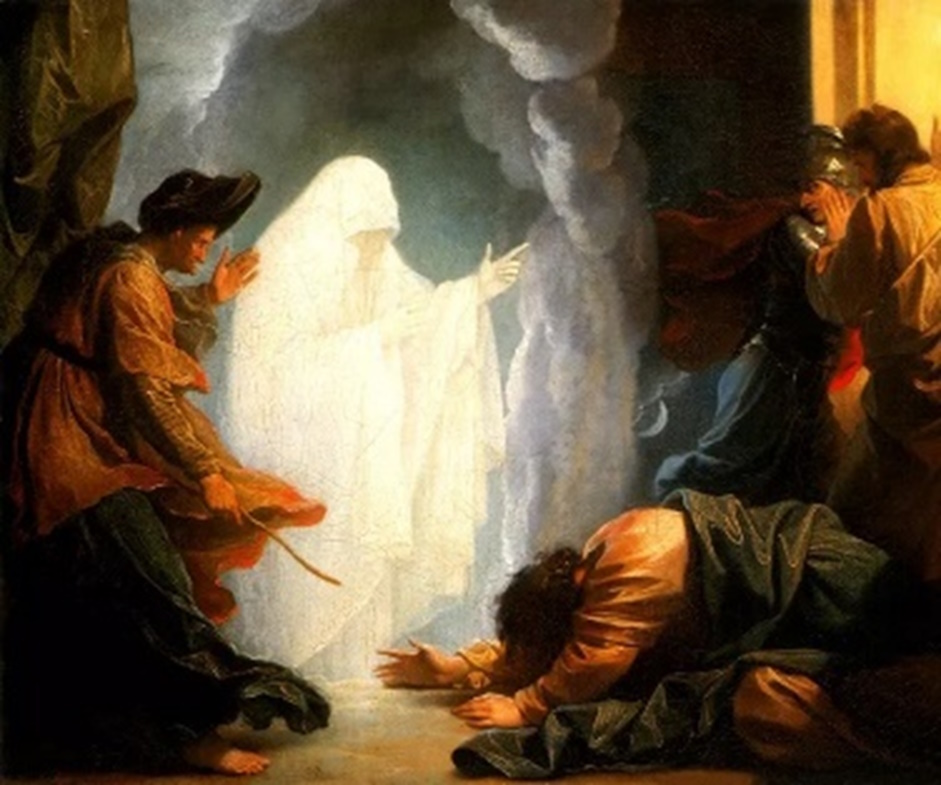
Clearly if it really was Samuel he did not come up willingly, but sounded rather peeved: ‘Why have you disturbed me?’ So do mediums have the power to call up people who do not want to come? If you as a Christian die, can a medium call you up against your will to talk with someone? Could a medium, say, call up the apostle Paul who did not want to be disturbed, and ask him what he meant by a particular verse? This seems hard to believe. A second point is to ask whether the dead all know the future, and if so how they know it. There was a common belief that they did, but this does not mean it is true. These issues make it hard to accept that the medium herself had the power to call up a dead person.
This leaves two alternatives. Some Christians take the view that no medium can really call up a dead person. Either it is just trickery, or they are really calling up demonic imitators. When the woman describes the figure she (but not Saul) sees, Saul acknowledges (Heb yada) the figure as Samuel. But if (as the LXX suggests) she is one who ‘speaks from the belly’, the actual voice came through her. Since Saul had ‘acknowledged’ the reputed god-like figure (Elohim) as Samuel, it would be natural enough to simply say ‘Samuel said to Saul…’ The Scripture could have remarked “of course this apparition was not actually Samuel”, but this was not really the point. The passage is about the sin and downfall of Saul, not the validity of dead people supposedly speaking through a medium. In 1 Kings 22 it is specific that it is a ‘lying spirit’ talking through Zedekiah and other prophets, but in that context it is to make us understand why their prophecies differed from Micaiah’s, and there is no such context here. Saul has been condemned for a rebellious act akin to divination in 1 Sam 15:23, and yet here in 28:8 he is asking the medium to perform divination (the same word) – even though ‘Samuel’ seems not to mention this nor reprimand the medium. So although it does not specifically say it is not really Samuel, maybe this is a possible conclusion.
The other view, taken by Shaul Bar (Op Cit) is that It was God who decided that Samuel would, in this exceptional case, return to talk with Saul. Interestingly the apocryphal Ben Sirach 46:19-20 says that: ‘Even after he had fallen asleep, (Samuel) prophesied and made known to the king his death, and lifted up his voice from the ground in prophecy.’ But surely prophecy comes from the Spirit of God (2 Pet 1:21). So if the dead Samuel prophesied then God’s Holy Spirit must have inspired him – so God must have condoned the rising. Ben Sirach also says the dead (including Samuel) are in ‘eternal sleep’, humans are not immortal (17:30) and that From the dead, as from one who does not exist, thanksgiving has ceased. (17:28). Ben Sirach (unlike its contemporary Daniel) makes no mention at all of a resurrection to judgment; the eternal sleep of death is a relief for those in suffering and to be avoided by those who are not. So if it was an eternal sleep that Samuel rose up from then he was not conscious, not able to make a decision whether or not to return. If he really did prophesy the future then surely God must have been the deciding agent?
Whatever we conclude in this case, there is no reason to suppose that Samuel was conscious in his ‘eternal sleep’ or aware of what was going on amongst the living before he was raised. Maybe he was peeved because he thought it was the day of judgment and the start of the age to come, and was disappointed to find it was not.
There are a great many variations of how commentators read this story, so dogmatism would be difficult.
Are there instances in Scripture of dead people speaking to the living?
In Isaiah 29 there is a prophecy against Ariel. The text says:
And you will be brought low; from the earth you shall speak, and from the dust your speech will be bowed down your voice shall come from the ground like the voice of a ghost, and from the dust your speech shall whisper.
But Ariel is a city (Jerusalem) not a person, and the text is poetic and metaphorical. Some of the texts in Ezekiel 32 similarly speak of sheol in poetic terms. But there is no real instance of dead returning to speak to the living.
Let us look at a few other biblical passages which have been construed by some in this way.
Spirits Speaking Through People
In 1 John it says:
24 Whoever keeps his commandments abides in God, and God in him. And by this we know that he abides in us, by the Spirit whom he has given us. 1Beloved, do not believe every spirit, but test the spirits to see whether they are from God, for many false prophets have gone out into the world. 2 By this you know the Spirit of God: every spirit that confesses that Jesus Christ has come in the flesh is from God, 3 and every spirit that does not confess Jesus is not from God. This is the spirit of the antichrist, which you heard was coming and now is in the world already.
We should also note 1 Peter 2:21:
For no prophecy was ever made by the will of man, but men being moved by the Holy Spirit spoke from God.
A spirit within inspires prophets to speak, but we need to make sure it is the Holy Spirit or Spirit of God giving this inspiration. If a person claiming to be a prophet denies the coming and deity of Jesus the Messiah then they are not being inspired by the Holy Spirit. This has absolutely nothing to do with the spirits of dead people communicating with live Christians.
The Transfiguration
Does the transfiguration imply that Moses and Elijah came back from the dead to talk with Jesus? Matthew’s version is the most complete and says:
17 1And after six days Jesus took with him Peter and James, and John his brother, and led them up a high mountain by themselves. 2 And he was transfigured before them, and his face shone like the sun, and his clothes became white as light. 3 And behold, there appeared to them Moses and Elijah, talking with him. 4 And Peter said to Jesus, “Lord, it is good that we are here. If you wish, I will make three tents here, one for you and one for Moses and one for Elijah.” 5 He was still speaking when, behold, a bright cloud overshadowed them, and a voice from the cloud said, “This is my beloved Son, with whom I am well pleased; listen to him.” 6 When the disciples heard this, they fell on their faces and were terrified. 7 But Jesus came and touched them, saying, “Rise, and have no fear.” 8 And when they lifted up their eyes, they saw no one but Jesus only. 9 And as they were coming down the mountain, Jesus commanded them, “Tell no one the vision, until the Son of Man is raised from the dead.”
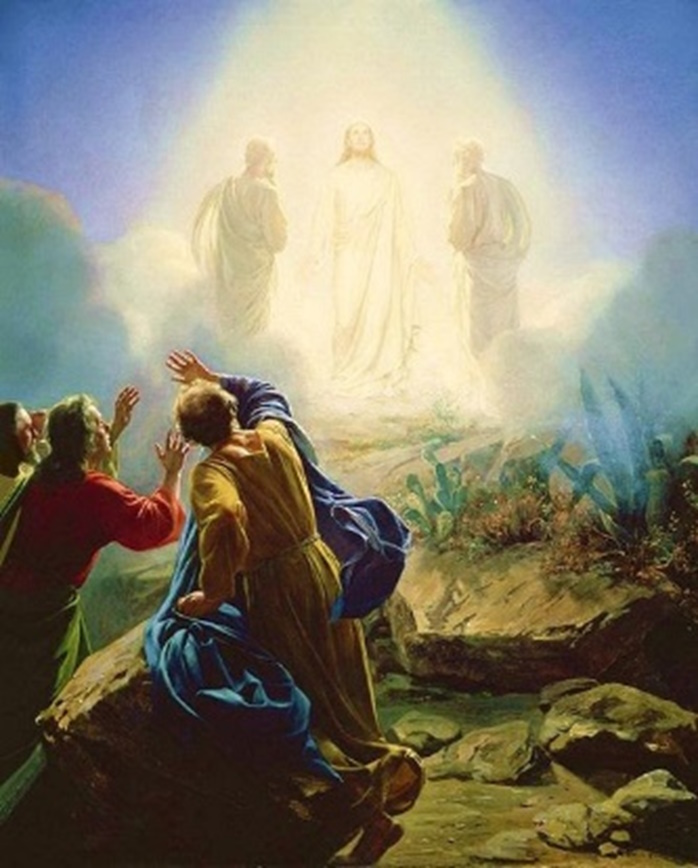
During the transfiguration the disciples saw Jesus shining and in white. But did his clothes actually temporarily change colour? We do not know what Jesus’ own experience on this mountain was because he does not tell us. Then the text adds: ‘There appeared to them’ Moses and Elijah talking with Jesus. We should note that Jesus did not come back down and say ‘I had a good chat with Moses and Elijah and they gave me a few tips’. Jesus did not say anything about a conversation with the two dead men or report what was said. Seeing them talking was what appeared to the watching disciples, it was a vision (horama). Now, much later this same Peter is sprung from prison by an angel who then disappears. The text says:
Peter went out and followed him; he did not realize that what was happening with the angel’s help was real; he thought he was seeing a vision. (Acts 12:9)
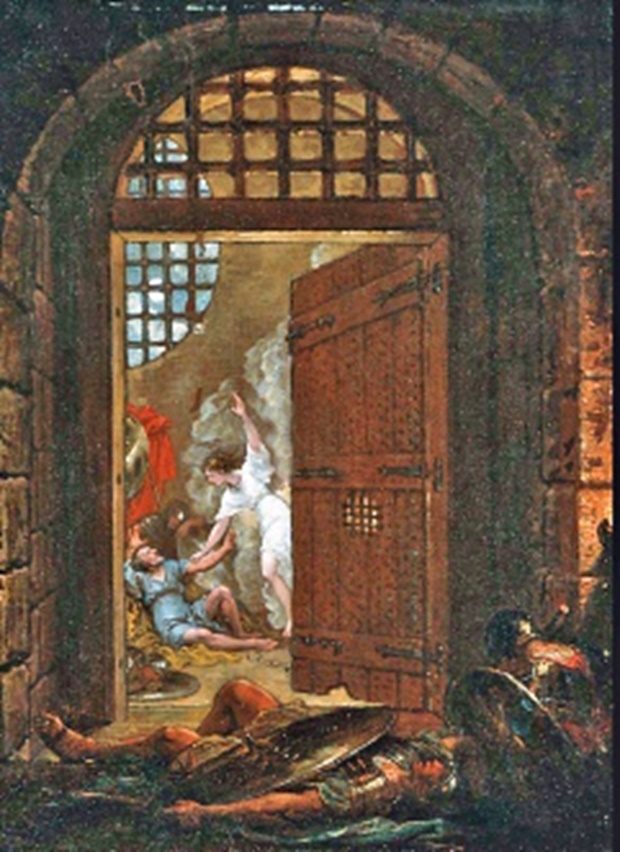
This is the same word vision (horama). It is a clear indication that a vision may not be real in the sense of being a physical reality. So the fact that Jesus ‘appeared to them’ to be talking with Moses and Elijah certainly does not necessarily mean that either Moses or Elijah was ‘really there’ and conscious. The vision was for the benefit of the disciples, to indicate that Jesus was the one attested to by the Law and the Prophets. Jesus got his information and teaching direct from God, not from dead prophets.
The Dead as Angels
What were the views current amongst Jesus’ contemporary Jews about the intermediate state between death and the resurrection? N T Wright asserts:
The Pharisees gave the answer: they are at present like angels or spirits they are presently disembodied; In the future they will receive their new embodiment.[5]
What basis is there for this? Wright has trawled through all the extra-biblical Jewish sources but gives no reference and simply cites Daube.[6] Daube, however, says:
It might, perhaps, be objected that a dead person is never explicitly introduced as an angel in extant early Jewish documents. However for one thing some passages do come close (1 Enoch 104:4-6 and 2 Apoc Bar 51:1, 10, 12) For another they may be more numerous than meets the eye: where worthy dead ones are held to live on ‘as angels’ Hebrew or Aramaic ke and Greek hos, just like English “as” may denote anything from “resembling” or ‘equal to” to the actual “having the nature of”… In Acts, angel and spirit are evidently on the same level.
Yes it should indeed be ‘objected’, and his answer is totally unconvincing. The 1 Enoch passage says nothing of the kind. 2 Baruch was written around the end of the 1st century CE and is available only in a much later Syriac translation. In 51:2 it promises that the dead will be ‘restored’ and ‘raised’ and in 5, 10, 12 it says that when they are the righteous will be ‘transformed… into the splendour of angels.’ This resembles 1 Cor 15[7] and is not about the intermediate state before resurrection. So Daube actually produces no reference at all in early Jewish or even later writings which suggests that the spirits of the dead can be called angels.
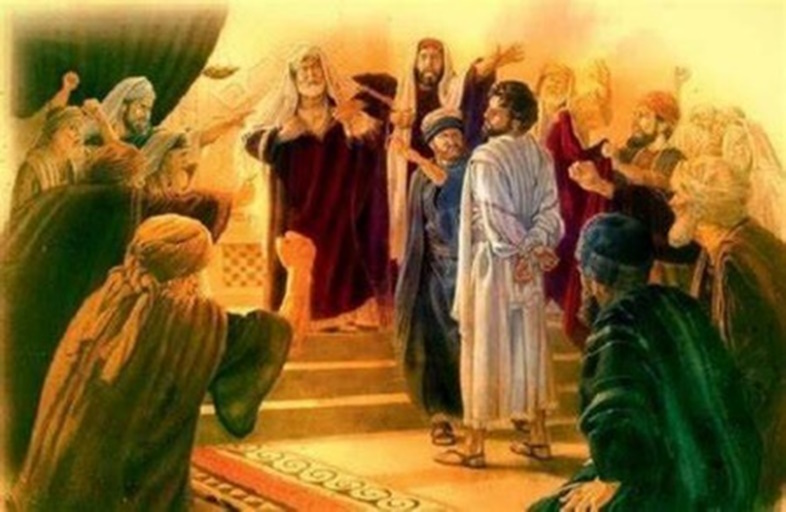
Daube relates his suggestion that the dead can be angels to an aside in Acts 23:8. In this incident Paul is before the Jewish Sanhedrin and claims ‘I stand on trial because of the hope of the resurrection of the dead.’ This stirs up a controversy between the Pharisees and Sadducees, and the Pharisees say: ‘“We find nothing wrong with this man.” They then say: “What if a spirit or an angel has spoken to him?” Luke puts in a kind of parenthesis to explain all this to non-Jewish readers: ‘(The Sadducees say that there is no resurrection, and that there are neither angels nor spirits, but the Pharisees believe both)’. We actually have very little contemporary evidence as to what exactly the Sadducees did believe. When they posed a question to Jesus (see below) it clearly states they did not believe in the resurrection. Josephus states:
4. But the doctrine of the Sadducees is this; that souls die with the bodies. Nor do they regard the observation of anything besides what the law enjoins them. For they think it an instance of virtue to dispute with those teachers of philosophy whom they frequent. But this doctrine is received but by a few: yet by those still of the greatest dignity. But they are able to do almost nothing of themselves. For when they become magistrates; as they are unwillingly and by force sometimes obliged to be; they addict themselves to the notions of the Pharisees: because the multitude would not otherwise bear them. Antiquities xviii.1
This seems to be a source of later claims that they believed only in the Torah and not the prophets though this is not exactly what Josephus says. What he really seems to indicate is that they rejected the oral law, holding only to the written Torah. Much later rabbinic sources are not reliable, especially as they were generally hostile to Sadducees, so our understanding of the latter is limited.
Clearly they did not believe in a resurrection, but what does it mean that they did not believe in either angels or spirits? If they believed in the Torah this clearly speaks of angelic messengers as in Genesis 19. Daube’s suggestion is that the Pharisees believed that dead humans existed as ‘angels’ or ‘spirits’ awaiting resurrection. But there is no other indication that this was so. Would the Pharisees really have gone on to suggest that the spirit/angel of a dead human could have spoken to Paul? Where, even in later rabbinic literature, was this suggested as an acceptable possibility? The word ‘angel’ means a messenger, where is there any indication that Pharisees believed dead humans could bring messages to the living? The most obvious explanation is that the Sadducees did not believe that angels or spirits were communicating with people in their own time. We might today say: ‘cessationists do not believe in speaking in tongues.’ But cessationists (a view found within the Reformed traditions and some dispensational segments of evangelicalism) do not deny that speaking in tongues occurred in apostolic times, they just claim that it died out after the apostolic age and that God does not inspire it today. This then would explain the point that the Pharisees thought an angel or spirit might have spoken to Paul. The Pharisees, unlike the Sadducees, thought that angelic communication had not ceased at the end of Old Testament times, but could still happen in their own age. Plainly other Jews (like Zechariah, Mary and the shepherds) also believed that angels could communicate in their own times – even though they might be a bit stunned to find it actually happening.
Peter’s Angel
Following on from Peter being sprung from prison by the angel he went knocking at the door of the mother of John Mark where the Christians were praying for him:
13 And when he knocked at the door of the gateway, a servant girl named Rhoda came to answer. 14 Recognizing Peter’s voice, in her joy she did not open the gate but ran in and reported that Peter was standing at the gate. 15 They said to her, “You are out of your mind.” But she kept insisting that it was so, and they kept saying, “It is his angel!” 16 But Peter continued knocking, and when they opened, they saw him and were amazed.
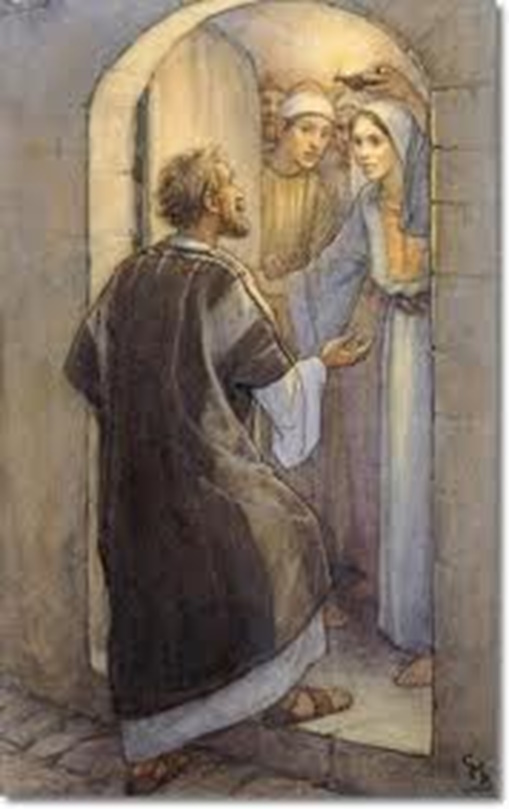
Some have suggested that they thought it was Peter’s ‘guardian angel’. The idea of guardian angels seems to come only from Jesus’ words: “See that you do not despise one of these little ones. For I tell you that in heaven their angels always see the face of my Father who is in heaven.’ (Matt 18:10). But if Peter really had a ‘guardian angel’ of this kind then the angel should be in heaven appealing to God, not knocking at the door of Peter’s friends. Why would an angel need to knock to be let in anyway? And if he was supposed to be guarding Peter then why visit Peter’s friends?
N T Wright (amongst others) suggests that the disciples idea that the person knocking was Peter’s ‘angel’ meant they thought he was dead and it was his departed spirit.[8] But why would the spirit/angel have to knock at the courtyard gateway to be let in? The resurrected Jesus had no problem entering a locked room, so why would an insubstantial spirit or angel? And why would Peter’s dead spirit/angel want to visit them anyway?
So what does it really mean? The word ‘angel’ means messenger – and this may be a heavenly being like Gabriel or a live human messenger. In Matt 4:12 we read that John the Baptist was arrested, and Herod Antipas kept him in prison (Matt 14:3). But in Matt 11:2 we read that John having heard in the prison the works of Jesus, sent two of his disciples to question him. Luke 7 relates the same story, and adds: ‘24 And the messengers (angelōn) of John having gone away…’ So the disciples knew that when Herod Antipas imprisoned people they might be able to send out living human messengers (angels). Peter was arrested by Herod’s nephew Herod Agrippa 1. If, then. the Herodian kings let prisoners send messengers to friends then maybe this was a messenger from Peter? Rhoda had recognised Peter’s voice, but as far as we know she simply said that Peter was at the door – and they may have thought that hearing the word ‘Peter’ muffled through the door she had jumped to the wrong conclusion. Why did they not immediately spring to open the door? Maybe they were nervous that the messenger was being observed, maybe Herod Agrippa 1 was trying to use Peter’s human messenger to discover his associates. In unexpected stressful moments thinking can be panicked. It seems highly unlikely, though, that by his ‘angel’ they meant his departed spirit, and in any case Herod had seemingly indicated his intention for a public show trial at Passover, so would have been unlikely simply to have killed Peter. The disciples feared he might die but not that he might be dead.
The bottom line is that there is nowhere anywhere in the Bible or contemporary literature that suggests dead humans can visit the living as ‘angels.’
Ghosts
During a storm the disciples saw a figure walking towards them across the water:
26 But when the disciples saw him walking on the sea, they were terrified, saying, “It is a ghost!” And they cried out in fear. (Matt 14:26)
The word rendered here as ghost is phantasma (image or phantom) which in turn comes from phantazein, ‘to make visible.’ They were terrified, but the word ‘ghost’ may be misleading. A ghost is specifically a manifestation of a dead person, a phantasm or apparition may be a fantasy or something even more sinister.
The Appearances as Jesus Died
The only other possible instance of dead people coming back is in Matt 27:53 where after Jesus’ resurrection the bodies of holy people came out of the tombs and appeared in Jerusalem. This is a mysterious saying, but note that it is not the spirits but the bodies that ‘appear’. Surely Matthew did not mean to imply that it was literally the bodies of long dead people, which bodies would have long since dissipated? In the future resurrection of the dead we will receive new spiritual bodies. There is no indication that any of these people communicated or spoke with the living or gave any messages. These are not disembodied human spirits. Why they appeared (seemingly from the exact wording actually after Jesus’ resurrection) is a mystery, but maybe what people were seeing was a vision of the future when the resurrection of which Jesus was the first fruits would bring back the dead with spiritual bodies (cf 1 Cor 15:44).
Are the Dead Conscious?
Notably, in John 11:24 Martha does not say (like Viola in Twelfth Night) ‘I know my brother is in Elysium’, but instead she says ‘I know he will rise again on the last day’. In 1 Thess 4:13 etc Paul does not reassure the Thessalonians that departed loved ones are in a conscious Paradise, but that they will rise again.
Jesus responded to a question from the Sadducees in Matt 22:23-33, Mark 12;18-27 and Luke 20:27-40. In Matthew’s account Jesus replies:
34 “The sons of this age marry and are given in marriage, 35 but those who are considered worthy to attain to that age and to the resurrection from the dead neither marry nor are given in marriage, 36 for they cannot die anymore, because they are equal to angels and are sons of God, being sons of the resurrection. 37 But that the dead are raised, even Moses showed, in the passage about the bush, where he calls the Lord the God of Abraham and the God of Isaac and the God of Jacob. 38 Now he is not God of the dead, but of the living, for all live to him.”
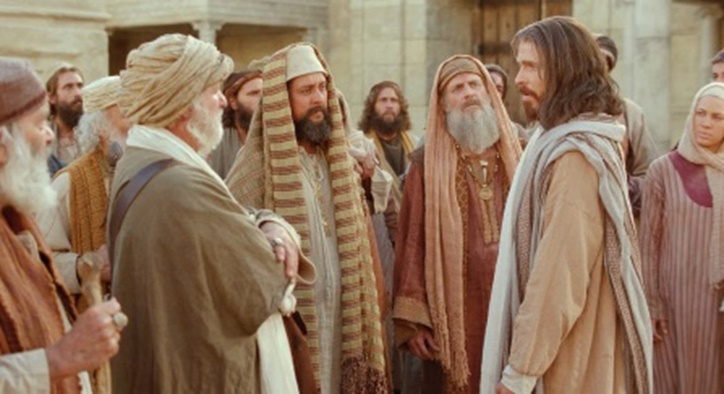
This does not imply that the dead are conscious. They attain to the resurrection from the dead as sons of God, it is his relationship to them that assures this. The last phrase could be read: ‘to him all live’. As far as God is concerned they live because of their status with him. This does not necessarily imply that whilst they await this resurrection they are conscious, and certainly not that they can interact with the living or intercede or pray for us. The whole context is not about present consciousness, but that death for them is not the end as the Sadducees believed – or indeed as many believe today. Abraham, Isaac and Jacob are alive to God and will rise again.
In my book I look at verses like Luke 23:43 ‘Truly, I say to you today, you will be with me in paradise” and Phil 1:23 ‘My desire is to depart and be with Christ, for that is far better.’ None of these imply that there is consciousness between death and the resurrection. I also look in depth at the parable in Luke of the rich man and Lazarus. A lot of Jesus’ parables contain satirical hyperbole. For example, the excuses made in Luke 14:18-20 are absolutely ludicrous (and in context highly insulting to the ones expecting to ’eat bread in the kingdom of God’). The camel and eye of the needle (Matt 19:24) or swallowing a camel (Matt 23:24) are equally ludicrous. Jesus’ parable about hades does not reflect contemporary views of hades, and aspects of the parable (as shown in my book) are clearly satirical. Jesus is satirising folk stories, not commenting on contemporary theology. The real point is in the final words – ‘If they do not hear Moses and the Prophets, neither will they be convinced if someone should rise from the dead.’ The scenario is satirical, but the implications are also clear that there are to be no visits from the dead to the living.
Authored by Dr Paul Marston, June 2024
References
[1] NT Wright Resurrection of the Son of God ch 2.
[2] Wright Op Cit p. 43.
[3] These developments are looked at in my book Hellfire and Destruction, (Eugene: Wipf and Stock, 2023).
[4] A lot of this is well explored in in a careful and excellent article in Hebrew Studies 62 (2021): 117–136 ‘Saul and the “Witch of Endor”’ by Shaul Bar, University of Memphis.
[5] Op Cit p.133
[6] David Daube, ‘On Acts 23: Sadducees and Angels’, Journal of Biblical Literature 109/3 (1990) 493-497.
[7] See https://intertextual.bible/text/2-baruch-51.10-1-corinthians-15.51 accessed 08.06.2024
[8] Op Cit p. 134
